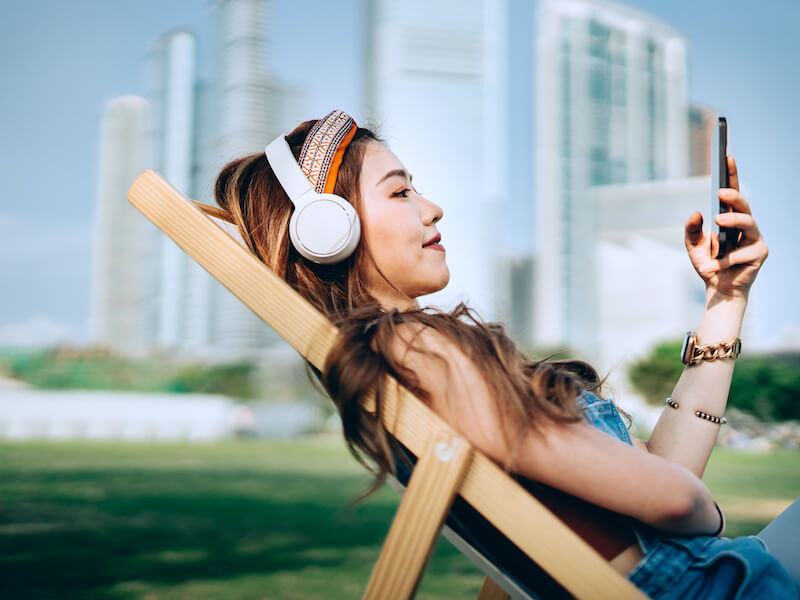
Aiden loves music. He listens to Spotify while working, switches to Pandora when jogging, and he has a playlist for everything: cardio, cooking, gaming, you name it. His entire life has a soundtrack and it’s playing on his headphones. But permanent hearing damage may be happening as a result of the very loud immersive music he loves.
There are ways to enjoy music that are healthy for your ears and ways that aren’t so safe. But the more hazardous listening choice is frequently the one most of us choose.
How does listening to music lead to hearing loss?
As time passes, loud noises can lead to deterioration of your hearing abilities. Typically, we think of aging as the main cause of hearing loss, but more and more research suggests that it’s really the accumulation of noise-related damage that is the problem here and not anything intrinsic to the process of aging.
Younger ears which are still developing are, as it turns out, more vulnerable to noise-induced damage. And yet, the long-term harm from high volume is more likely to be ignored by younger adults. So because of extensive high volume headphone use, there has become an epidemic of hearing loss in young people.
Is there a safe way to enjoy music?
It’s obviously hazardous to enjoy music at max volume. But simply turning down the volume is a less dangerous way to listen. Here are a couple of basic guidelines:
- For adults: No more than 40 hours of weekly listening on a device and keep the volume below 80dB.
- For teens and young children: 40 hours is still okay but lower the volume to 75dB.
About five hours and forty minutes a day will be about forty hours every week. That may seem like a lot, but it can go by fairly quickly. Even still, most individuals have a pretty solid concept of keeping track of time, it’s something we’re trained to do efficiently from a very young age.
Keeping track of volume is a little less user-friendly. On most smart devices, smartphones, and televisions, volume isn’t measured in decibels. It’s calculated on some arbitrary scale. It might be 1-100. Or it may be 1-10. You might not have a clue how close to max volume you are or even what max volume on your device is.
How can you monitor the volume of your tunes?
There are a few non-intrusive, easy ways to determine just how loud the volume on your music actually is, because it’s not very easy for us to contemplate what 80dB sounds like. Differentiating 75 from, let’s say, 80 decibels is even more puzzling.
So utilizing one of the many noise free monitoring apps is greatly suggested. Real-time readouts of the noise around you will be available from both iPhone and Android apps. In this way, you can make real-time adjustments while monitoring your real dB level. Your smartphone will, with the proper settings, let you know when the volume goes too high.
As loud as a garbage disposal
Your garbage disposal or dishwasher is typically about 80 decibels. That’s not too loud. Your ears will begin to take damage at volumes higher than this threshold so it’s a relevant observation.
So pay close attention and try to stay clear of noise above this volume. If you happen to listen to some music above 80dB, remember to limit your exposure. Perhaps listen to your favorite song at max volume instead of the whole album.
Over time, loud listening will cause hearing problems. Hearing loss and tinnitus can be the consequence. Your decision making will be more educated the more aware you are of when you’re entering the danger zone. And safer listening will hopefully be part of those decisions.
Still have questions about keeping your ears safe? Contact us to explore more options.
